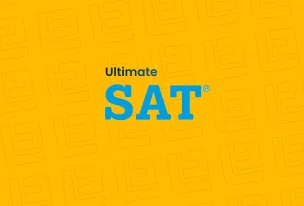There are a number of tips you can use if you want to pass the IELTS Reading test and get a decent score. In this essay, we’ll talk about a few approaches to using when responding to reading-related IELTS questions. The IELTS Reading section is one of the most challenging parts of the exam because it tests not only your ability to understand written English but also your speed, accuracy, and analytical thinking under time pressure. With three passages and 40 questions to answer in just 60 minutes, preparation and strategy are key to achieving a band score of 7.0 or higher. In the following sections, we will explore eight powerful strategies that have helped thousands of test-takers improve their performance. Each tip is explained in detail with practical examples, common pitfalls to avoid, and additional insights to ensure you can apply them effectively during the actual exam.
Understanding the Types of Reading Section Questions
You must comprehend the types of questions that usually appear in the Reading part of the IELTS test if you want to succeed on it. Understanding these question kinds will help you create the best tips for responding to them. The IELTS Reading section features up to 14 different question types, but some appear more frequently than others. Knowing what to expect reduces anxiety and allows you to allocate your mental energy more efficiently.
One of the often occurring question kinds is multiple choice, where you must choose the best response out of a variety of available possibilities. You must thoroughly read and absorb the material offered in the text in order to respond to this kind of question. Multiple-choice questions can have single or multiple correct answers (A–D or select all that apply). A common mistake is selecting an option that is factually correct but does not answer the specific question asked. Always refer back to the stem and ensure your choice directly addresses what is being asked.
The Sentence Completion question type also requires you to complete any gaps in a sentence that has been extracted directly from the text. You must comprehend the sentence’s context and make use of your capacity for information analysis to respond to this kind of inquiry. These questions often use paraphrasing, meaning the exact words from the passage may not appear in the question. Practice identifying synonyms and understanding how ideas are rephrased to improve accuracy. Additionally, pay close attention to word limits—exceeding them results in zero points even if the content is correct.
Other common types include True/False/Not Given, Matching Headings, Matching Information, and Summary Completion. Each requires a slightly different approach. For instance, True/False/Not Given tests your ability to distinguish between explicit statements, contradictions, and information not present in the text. Many candidates lose marks by assuming “Not Given” means “False”—remember, if it’s not stated, it’s Not Given. Developing familiarity with all question formats through official practice tests is one of the most effective ways to build confidence and speed.
LPDP Scholarship: Opportunities to Make Your Dream of Studying Abroad Come True
Avoid Getting Caught Up on the Meanings of Unfamiliar Words
Avoid obsessing over the definitions of new terms when answering IELTS reading questions. Instead, concentrate on comprehending the entire text in order to correctly respond to the questions. It can take time and be confusing to fully comprehend the meaning of every word in a text. Therefore, it’s crucial to use successful tips. The passages are written at a level where understanding every single word is unnecessary—context clues are deliberately provided to help you infer meaning.
Try reading the complete sentence or paragraph to understand the context rather than focusing too much on the meaning of a single word. You might be able to determine the meaning of a word in a larger context. Keep in mind your basic comprehension of the subject being covered as well as the relationship between that word and the other words in the sentence. For example, if you encounter the word “photosynthesis” in a biology-related passage and don’t know its exact definition, surrounding words like “plants,” “sunlight,” “convert,” and “energy” should guide you toward understanding it involves a process plants use to make food.
Remember that the major objective of the IELTS Reading section is to assess your reading and general comprehension skills, not only your vocabulary knowledge. You’ll be better able to accurately answer the questions if you can comprehend the main concepts and textual structure as a whole. Even native speakers encounter unfamiliar terms in academic texts. The key difference is they don’t panic—they use context, prefixes/suffixes (e.g., “bio-” = life, “-ology” = study of), and logical deduction to move forward. Practicing this skill daily with complex articles from sources like BBC, The Guardian, or National Geographic will train your brain to stay calm and focused.
This tips will help you make the most of the time and effort you have to devote to answering IELTS Reading problems. Keep in mind that answering these questions successfully depends on your ability to comprehend the entire text and to link essential concepts. If you still can’t figure out a word after using context, skip it and return later if time allows. Spending more than 30 seconds on one unknown term is rarely justified—your time is better spent securing points elsewhere.
ALSO READ: 7 Tips for Successfully Obtaining an AAS Scholarship 2023? #ReadyToStudyAbroad
Regularly Reading

One of the best ways to improve your reading skills is by reading regularly. Regular reading can help you understand various types of texts written in English, such as online news, newspapers, novels, and magazines. Consistency is more important than duration—15–20 minutes daily is far more effective than cramming for hours once a week. Over time, this habit builds automaticity: your eyes move faster across the page, and your brain processes information more efficiently.
Moreover, regular reading can help you enhance your vocabulary in English. By reading various types of reading materials, you may come across many new words that you might not have heard before. By expanding your vocabulary, you will find it easier to understand English texts and answer reading questions in the IELTS exam. Don’t just passively read—actively engage by underlining unknown words, guessing meaning from context, then checking a dictionary. Apps like Anki or Quizlet can help you review these words systematically using spaced repetition, a proven memory technique.
The more you read, the faster you can read and comprehend the main concepts of the texts you read. The more you read, the easier it becomes to understand the content and answer reading questions in the IELTS exam. Research shows that proficient readers process text in “chunks” (groups of words) rather than word-by-word, which dramatically increases speed. To develop this skill, practice timed reading: set a 3-minute timer for a 300-word article, then summarize the main idea in one sentence. Gradually reduce the time while maintaining comprehension. Sources like IELTS Cambridge books, The Economist, or Scientific American mirror the difficulty and style of actual test passages.
ALSO READ: Complete Guide to Taking the IELTS Test and Achieving a High Score
Understand the Instructions
Understanding the instructions completely is essential when responding to questions on the IELTS Reading test. You must be cautious and thoroughly understand the instructions given in the questions because some of them may be unclear or deceptive. A single misread word can change your entire answer. For example, “NO MORE THAN THREE WORDS” means four words = wrong, even if correct in meaning.
For instance, some questions might include the command, “Write two words and/or a number.” In response to this instruction, you may choose to write one word, one word and a number, two words, or two words and a number. You can use letters to represent numbers. In order to give the right answer, it is crucial to comprehend such instructions completely. Practice underlining key instruction words during preparation: “AND/OR,” “FROM THE TEXT,” “IN ANY ORDER.” These small details determine whether you score or lose a point.
Additionally, pay attention to the directions’ essential terms. The meaning of the question can be drastically changed by certain phrases like “not,” “except,” or “only.” In order to assure the right response, you must fully comprehend these words. Questions with “Which of the following is NOT mentioned…” require you to eliminate three options that ARE in the text. Many candidates rush and select a correct detail instead of the exception. Slow down for 5 seconds to double-check these tricky modifiers—it’s worth the investment.
Conquer the IELTS Reading Test with these Tips
Skimming
Applying the skimming technique is a good way to approach IELTS Reading questions. Skimming is reading rapidly to understand the main idea. This tips can help you conserve time and improve your comprehension of the book as a whole. Aim to skim a 800-word passage in 2–3 minutes before attempting questions. This gives you a mental map of where information is located.
First, when skimming, pay attention to figuring out what the text’s major point is. Read the headings, subheadings, and any graphs or illustrations to get a general understanding of the text’s topic. This will help you understand the text’s subject matter more broadly. Note the first sentence of each paragraph (topic sentence) and the last sentence (often a conclusion or transition). These act as signposts guiding you through the author’s argument or description.
Second, focus on the important words in each paragraph. These words tend to be well-known phrases that are directly related to the question or instruction in the query. Recognize and pay special attention to any words or phrases that are repeated in the text. Repetition signals importance—authors rarely repeat ideas unless they are central. Also watch for signal words: cause/effect (because, therefore), contrast (however, whereas), addition (moreover, furthermore). Understanding text cohesion helps you predict where answers are likely to appear.
ALSO READ: What is the Minimum IELTS Score for Studying Abroad? Any University of Your Choice…
Finding Keywords
Searching for keywords that refer to crucial material in the text is a helpful tips for responding to IELTS Reading questions. These keywords may include geographical names, dates, statistics, person names, and other terms associated with the query or directive. You can find the information you need more quickly and effectively by using keywords to search for it. This technique is especially powerful for locating answers in long, dense passages.
First, carefully read the question and note the keywords you need to use while searching the content. For instance, if the inquiry concerns the date of an event, you should search for the words “date” or “event.” While reading the material, pay close attention to these phrases and scan for passages that include that information. Underline or circle keywords in the question booklet (you can write on it). Then scan the passage vertically, letting your eyes glide down the page until you spot matches or synonyms.
Second, take note of any bold text or other unusual writing in the text. This could mean that essential information or keywords are present. For instance, you should focus on terms that are bolded or italicized. Be aware of paraphrasing: the passage might say “constructed in 1995” while the question says “year of completion.” Train yourself to recognize synonyms (big/large, rise/increase, problem/issue) and related forms (employ → employment → employer). Building this flexibility is critical for Matching Information and Summary Completion questions.
Effective Ways to Understand English
Understanding Text Types
Understanding the kinds of texts that frequently appear on the IELTS Reading test is crucial for your preparation. Discursive and descriptive texts are two widely used text types. Academic IELTS includes a third: argumentative texts. Recognizing the type helps you predict question focus and adjust your reading strategy.
First off, a descriptive text is a sort of text that thoroughly explains or describes a subject. This essay focuses on offering accurate information and facts about the subject under discussion. The structure and order of descriptive text typically makes it simpler for readers to follow the discussion’s progression. Texts about popular tourist places, exotic creatures, or particular things are examples of descriptive texts. Understanding the material offered in the text and searching for the precise details outlined in the questions are crucial when responding to questions about descriptive text. Look for numbers, dates, and specific examples—these are prime targets for Sentence Completion and Short Answer questions.
Second, discursive text is a category of writing that emphasizes ideas, justifications, and analyses. Usually, the theories, beliefs, or hypotheses presented in this book are backed up by facts or evidence. Although discursive text may include the author’s viewpoint, it should also be supported by solid evidence and reasoning. Typically, this text encourages readers to engage in critical thought and take into account many viewpoints. Texts that debate social, political, or environmental issues are examples of discursive texts. Finding the major points, the author’s viewpoint, and the connections between ideas are crucial when responding to inquiries about discursive text. Pay attention to tone (positive/negative/neutral) and logical connectors—these often appear in Matching Headings or Writer’s Views (Yes/No/Not Given) questions.
ALSO READ: Challenge Yourself with Mock Tests: Face the Exam with Confidence
Time Management
It’s essential to adequately manage your time if you want to handle the Reading segment. Make sure to answer each question within the 60-minute time limit. With no extra transfer time (unlike Listening), every second counts. A proven strategy: spend 20 minutes per passage, including reading and answering. This leaves a buffer for review.
The ideal time allocation is proportionate. As a general rule, try to give each question no more than one minute. This takes into account the time it takes you to read the question, comprehend the instructions, find the relevant information in the text, and compose your response. You can allot a little bit extra time for questions that feel more difficult or demand deeper thought. Try not to focus too much time on any one question, though. If stuck after 90 seconds, mark your best guess, flag it, and move on. Unanswered questions score zero—guessing gives you a 25% chance on multiple-choice.
Spend about 15 minutes attentively reading the text before beginning the reading segment. Apply skimming strategies to gain a general understanding of the text’s subject, aim, and structure. As you read, highlight any important details, themes, or keywords that might apply to the questions you will later address. By using skimming tips, you’ll be able to swiftly understand the text’s overall meaning of IELTS reading. After skimming, tackle questions in order—they usually follow the text sequentially. Only jump around if a question explicitly refers to the whole passage (e.g., “main idea”).
10 Tips to Help You Achieve the Highest Score in the IELTS Writing Test
All of these information can help you raise your IELTS reading score with those tips. However, it’s crucial to keep in mind that passing this test involves effort, tenacity, and dedication. You can approach the IELTS reading questions more skillfully if you do your homework. Combine these strategies with full-length practice tests under timed conditions at least twice weekly. Track your progress: note question types you miss most and drill those specifically. With consistent application, band 6.5 becomes 7.0, and 7.0 becomes 8.0. Join us now!




